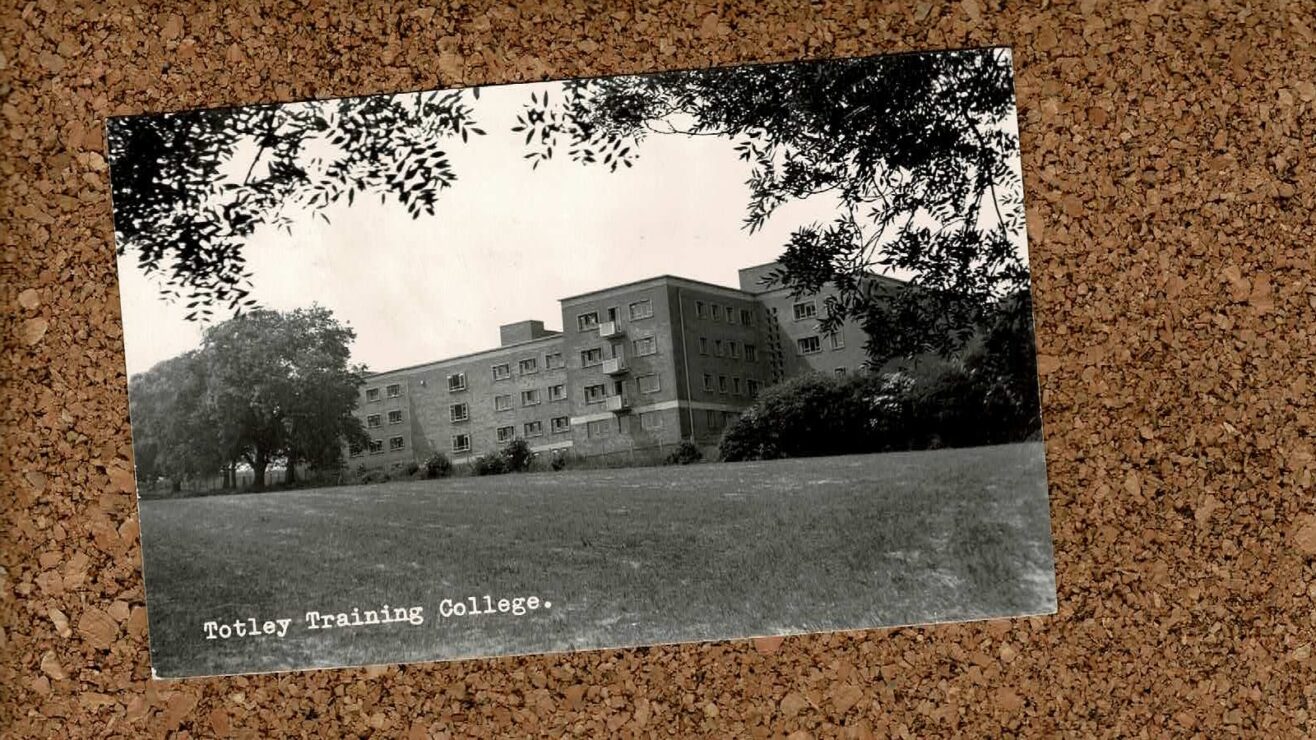During 2024, Wonkhe and Solutionpath have been working with a number of higher education institutions, to understand what’s shaping their thinking as they seek to enhance the academic support they provide for students, and to offer opportunities for some shared reflections and join insight as well.
We invited our partner institutions briefly to share their reflections about what they are trying to accomplish and why, what they have learned in the process.
Introducing discipline-based pastoral mentors at the University of Exeter
Nicky King, Associate Pro Vice Chancellor for Education, and Jess Johnson, Head of Learning Piloting and Scaling
We recently undertook a review of our holistic institutional approach to student academic support and proposed changes to ensure we can be proactive and data informed to support the early identification of issues students may be facing. We aim to enhance students’ sense of belonging and mattering, through fostering greater collaboration between academic and professional services colleagues to support students to succeed in their studies.
We’ve developed a model where every department will have a “pastoral mentor”: specialist staff supporting students and taking responsibility for early identification of emerging concerns. They are embedded within the departmental community, a friendly and approachable face who understands the nuance of the department and the particular challenges that may be faced when studying that subject, but who are not involved in teaching or assessment. They provide initial support and triage, acting as a nexus for bridging the gaps between different parts of the support system.
High quality student support requires investment, but we believe there is a moral and ethical imperative to support our students succeed regardless of the challenges they may be facing. Early in our evaluation cycle, we’re anticipating lowering the non-continuation rate through earlier intervention and support to reduce the number of students unable to progress and thus realise improvements in awarding gaps, and fewer students in crisis needing more complex interventions.
Implementing a new model is challenging but we’ve co-created with our first cohort of mentors and pilot departments, ensuring that there is continuity and structure for all, but space for departmental context and variation. In recruitment we’ve been overwhelmed by experienced and compassionate professionals who are passionate about putting students at the heart of what we are doing. Through this co-creation and rapid piloting approach we’ve been able to listen to and address concerns through continuous improvement of the model and are now excited to be moving swiftly to roll this out across the whole institution by September 2025.
As simple as it sounds it boils down to the fact that having a friendly and non-judgmental person within the department who has the focus, expertise and capacity to look at the whole student experience makes a real difference. Students see someone empathetic who wants the best for them and who can be an advocate who believes in them and thus can trust that they belong in a university in which they, and their success, really matters.
Balancing student preference with student needs at Middlesex University
David Gilani, Head of Student Engagement and Advocacy
Over the past two years, we have built a community of practice from across the university with the primary focus of providing earlier, more proactive, and targeted interventions with the hopes of improving continuation rates. Student retention was our overall driver, however having staff from a range of student-facing areas meant that our “whys” were all slightly different. Although this could have been a risk, I think it actually benefited how we approached the work.
We now use a combination of attendance data, captured through our student mobile app, alongside a wider mix of engagement proxies within the StREAM learner engagement analytics platform to identify students who may benefit from supportive interventions. Interventions utilise a range of different approaches, including academic advisers reaching out directly to students, automated email alerts, phone calls from trained student staff and consultation meetings with progression and support advisers.
One tension we have found is that students’ communication preferences vary. For instance, if a student had a period of low attendance and engagement, a member of our student staff would give them a phone call. While most students appreciate the opportunity to speak directly with a peer, and have noted that it is nice that the university cares about their success, other students dislike the invasive nature of the phone call method. Just because a form of academic support may be useful for a student, does not mean that they’ll appreciate it in the short-term.
In some cases, we talked through such feedback as a team and adjusted our approach. However, in other cases, the group dynamic meant that we could reassure ourselves and maintain confidence that what we were doing was helping students. It’s a constant balance.
Developing data-driven coaching approaches at Anglia Ruskin University
Claire Pike, Pro Vice Chancellor Education Enhancement
As with many institutions, we have iterated several support models over the past few years, and continue to enhance our approach to meet the evolving needs of our students.
When considering current and future requirements for underpinning systems, we feel it is important to do a thorough needs analysis prior to embarking upon procurement-related activity, and be clear as to what we want to achieve out of any change; we need to agree a deep and secure shared understanding of what effective academic support means for our context.
In particular, this involves unpicking what we mean in practice when we say we want to harness the best use of data. Engagement analytics need to make sense in the context of all aspects of our large, complex and multi-faceted provision, including on-campus, blended and distance-learning delivery modes; and full-time, part-time, degree apprenticeship; and short-course/modular student cohorts. We need to define what an ideal system would look like in providing academic support that is as frictionless and as natural as possible for the students and staff involved.
Some of our learning has come from our current practice in the provision of academic support to degree apprentices: 12-weekly tripartite Progress Review meetings for each apprentice, together with a representative from their employer and a suitable member of staff from ARU. We employ a large number of Degree Apprenticeship Study Coaches to perform this important and specialist personal and professional development-related role – members of staff who are learner-facing and a key part of our programme delivery, but not academic staff in the traditional understanding of that term.
Arguably, this high level of investment in individual academic support is not scalable to our entire student population within a current envelope of resource – but by taking a data-driven approach to resource allocation, such that we provide additional support to students where positive impact can be most felt, we are targeting additional specialist coaching support to students flagged as at-risk of non-continuation or non-completion. This additional support supplements our existing, academic-led, Personal Development Tutorial scheme; the model is currently in pilot within one of our faculties, for subsequent evaluation and potential institution-wide roll-out.
Within our present journey of digital transformation/enhancement – of which academic support is an important aspect – we remain keenly aware that system design and implementation is only the beginning. For benefits to students and staff to be realised fully, cultural buy-in from all stakeholders, scaffolded by appropriate staff development and evolution of working practices, will be essential.
Embedding wellness into a whole university approach to academic mentoring at the University of East London
Michelle Morgan, Dean of Students
We started looking in earnest at creating a whole university-integrated approach across all our activities around three years ago. We wanted to put belonging and wellness as key drivers to help our students succeed not only in their studies but also in their careers. Through this, we recognised activities such as the academic advising system wasn’t functioning for either students or academics, and it was time for a rethink.
As we began unpicking the current system to rebuild the new one, we realised we needed to move away from strict policies on how academic mentorship should be delivered and what it should look like. Instead, we have moved towards the use of guiding principles, an approach which we felt was more appropriate for us. This way, it allowed different disciplines and schools to adopt a delivery model based on their size, shape, and student needs. We are working with UKAT to deliver training and we are part of their new accreditation scheme which will help us evolve our work in this area.
A guiding principle and resource is our “10 wellness spheres.” Spheres are not a new concept and have been used in business, industry and education but what is different about our model is that it identifies the spheres that are key within the study lifecycle. They include digital, social, and residential among others. So we created a one-page navigation system for the 10 spheres where students and staff supporting students can quickly and easily access all information relating to that sphere including tips, an explanation of why that wellness sphere is so important and how it can help their success as well as links to key resources. A similar one has been created just for staff so they can also easily navigate the huge amounts of information and support available. This was part of our University Mental Health Charter submission.
In creating an effective integrated whole university approach, we realised we needed to make better use of the huge amounts of data we collect more reflectively to allow us to better understand our ever-changing student demographics and allow us to respond live to current demands. Having seen Nottingham Trent University’s StREAM learner engagement analytics system, we saw that using data in a smart way could reduce the extra stress to the staff delivering support to students. It is vital for us as a sector to recognise that all students, and staff, have different ways of working, studying, and living, and trying to build a system that uses data to reflect and enhance that experience. This is a huge piece of ongoing work.
The Student Success Programme at the University of Derby
Neil Fowler, Associate Provost (Learning and Teaching), and Scott Porter, Programme Manager, Change Portfolio Management Office
The Student Success Programme is an ambitious institution-wide programme aimed at addressing a number of intersecting challenges that impact upon ways that we work in support of our students. With eight current projects, as diverse as the introduction of a new VLE, a regulations review and a review of our approaches to student academic and wellbeing support and a range of points developments in between, the programme is genuinely ambitious.
As with all large and complex programmes it is not without its challenges and not all has run as smoothly as we would have wished, however, the approach has definitely started to bear fruit. A recent review, including all the project sponsors and managers, drew to the fore the accumulative benefits of the individual projects and highlighted why the programme was more than the sum of its parts.
With multiple projects coming together the real challenge lies in managing the intersections to maximise impact and ensure that changes are coordinated minimising disruption to both colleagues and students alike. As education is, at its very heart, a relational activity we recognise that the programme is really one of culture change. Each of the projects addresses specific challenges with systems, processes, policies, etc. but they do so to facilitate the behaviours we wish to encourage more of and emphasise a culture of ownership and agency among colleagues to address the success of those students with whom they work.
There is already excellence in many places across the University of Derby; the Students Success Programme aims to make excellence the cultural norm.
Combining skills and career guidance into academic support systems at the University of the West of Scotland
Vic Boyd, Senior Lecturer Academic Personal and Professional Development, Learning Transformation, Emily McIntosh, Director of Student Success, and Iain McLellan, Associate Dean (Learning and Teaching)
The academic year 2023-24 saw the second implementation of the ASPIRE module at the University of the West of Scotland. ASPIRE is our cross-institutional APPD (academic, personal and professional development) framework and is an ongoing partnership between the central APPD team and colleagues within Academic Skills and the Careers service as well as subject specialists within our academic schools.
ASPIRE is currently embedded in nearly 30 undergraduate programmes at SCQF (Scottish Credit and Qualifications Framework) Level 7 and a smaller number at Level 8. The APPD curriculum is delivered in an integrated way alongside subject-specific curricula, making use of contextualised in-class examples, professional practice values and vocational literacies. The Level 7 curriculum introduces students to reflective practice and active goal setting to facilitate the surfacing of career aspirations and to promote agency in shaping and co-creating the curriculum. Level 8 further builds on promoting self-awareness in the context of work-related learning and more focused development of professional literacies.
ASPIRE is also one way in which the institution embeds personal advising, by including individual student appointments in the timetable alongside flipped-classroom-informed weekly teaching and a strong focus on group work. This way of providing advice to students is one way in which a whole-of-institution approach might be articulated, however, extensive discussion on parity of experience and a nuanced understanding of operationalisation in different subject contexts and cultures is essential before recommendations on future efficacy can be made.
As we enter the new academic year, subtle adjustments/enhancements to ASPIRE delivery have been made based on staff and student feedback allowing us to be responsive in our approach. A more systematic review of module delivery is underway to consider how we make the most of a burgeoning sense of distributed ownership that recognises, endorses and rewards our students’ significant contribution to our academic community. This is an essential principle underlining our academic support model.
This article is published in association with StREAM by Solutionpath and Kortext. You can access Support to Success, the full report of our year long project on academic support here. Wonkhe and Solutionpath would like to thank all the institutions who worked with us on academic support this year.














Thank you for sharing. All these elements are essential for student support, learning and experience. Most of these are being practiced across HEI in some form or another. It would be interesting to see student feedback and comments on these processes eg is this what they want? Is it effective with class 3 evidencing? Intersectional data on which students find these helpful or beneficial? Or is it simply another tick box for the institution?!
What I would like to see dialled up here is the centrality of assessment related concerns from a student perspective (particularly those facing difficulties in continuing) – this locates the issue less in the domain of the students and makes it more interactional /situational we are talking about a complex system here with many levers, and the centre of it is the way marking criteria are chosen, applied by markers and reflected in learning and teaching, all else is secondary